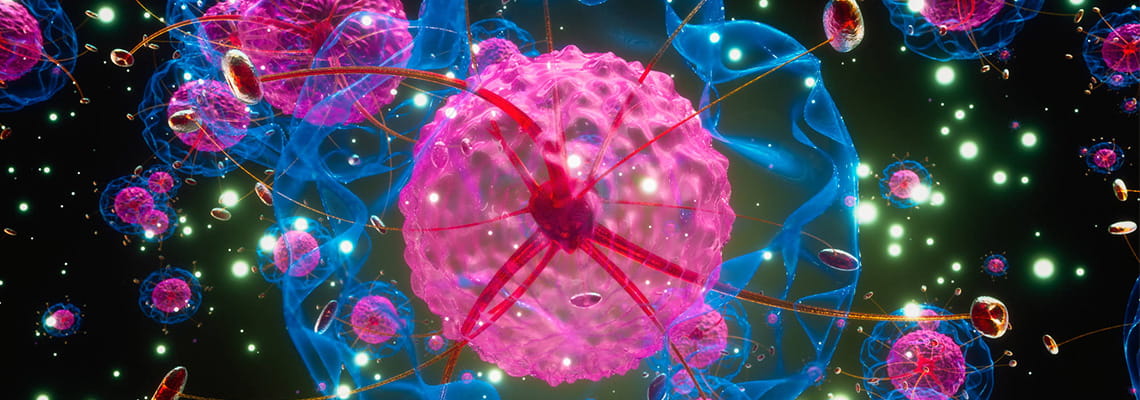COVID-19 Variants: What You Need to Know About Coronavirus Mutations

For a disease that's taken almost 2 million lives worldwide, hearing that new variants of COVID-19 are emerging and spreading across the globe is understandably anxiety-inducing.
Dr. Wesley Long, director of diagnostic microbiology at Houston Methodist who is involved in the coronavirus sequencing efforts, is here to explain what we know and don't know about these new coronavirus variants, as well as what these variants mean in our fight against COVID-19.
What is a COVID-19 variant exactly?
Dr. Long: As a virus replicates to make more of itself, small genetic changes — called mutations — can occur. In many cases, these mutations have no effect on the virus, good or bad. These mutations can even help us track how viruses spread around the world. In some cases, however, these mutations can be advantageous to the virus. Each variant of COVID-19 is characterized by a distinct collection of mutations.
Put simply, COVID-19 variants have accumulated changes to the coronavirus genome that persist as the virus passes from person to person. If the changes result in a more transmissible virus, like the D614G mutation, we may then see more and more of that particular variant in infected patients.
Since variants arise as the virus replicates, the more we allow this new coronavirus to spread among us, the more chances we give new variants of COVID-19 to arise.
How many COVID-19 variants are there?
Dr. Long: There are thousands of COVID-19 variants circulating around the globe. The first major COVID-19 mutation that seemed to increase contagiousness was detected early in the pandemic. Called the D614G variant, it quickly became the defining mutation of the predominant variants causing COVID-19 infections in the U.S. over the last eight months. Strains carrying D614G have since accumulated new mutations and split into three major variant groups.
Recently, more variants have arisen, including the:
- B.1.1.7 strain – first detected in the U.K. in Sept. 2020, but recently identified in Harris County
- B.1.351 strain – first detected in South Africa in Oct. 2020
The CDC is also reporting that a new COVID-19 variant is currently circulating in Nigeria.
Each of these new variants differs genetically, but almost every variant so far has one or more mutations in the virus' spike protein — which plays a role in how the virus invades human cells.
Are the new COVID-19 variants more dangerous?
Dr. Long: Right now, there's no evidence that any COVID-19 variants we have studied cause more severe illness or increase a person's risk of death.
Some scientists do believe, however, that several of these newer variants — particularly the B.1.1.7 strain that originated in the U.K. — spread more easily from person to person. This may be similar to the story of D614G.
While COVID-19 cases have increased alongside the presence of these variants, it's still too early to tell whether this is due to these strains being more contagious or simply because of a breakdown in the preventive measures that keep communities safe. We need more data, including lab studies, to confirm whether these strains really do spread more easily.
Will the COVID-19 vaccine work on new variants?
Dr. Long: We do not expect these particular variants to significantly impact the effectiveness of our current COVID-19 vaccines. However, as we begin to roll out the vaccines, it will be critically important that we continue to sequence COVID-19 isolates from those who are infected to look for new variants that could escape our current vaccines.
If a vaccine-resistant variant does arise eventually, all hope is not lost. One beauty of our two current COVID-19 vaccines — both mRNA vaccines — is that the technology behind these vaccines actually lends itself to more quickly iterating on second-generation vaccines that can account for new mutations. Still, we need to do everything we can to slow the spread of the pandemic while we get these vaccines distributed.
What can I do to protect myself from these new variants?
Dr. Long: New variant or old, the protective measures you should be taking to stay safe from COVID-19 remain the same:
- Practice social distancing
- Avoid social and family gatherings, especially large groups and events held indoors
- Wear a mask when in public
- Stay home if you feel sick
Lastly, we need vaccine-based herd immunity. When the COVID-19 vaccine is made available to you, please consider getting vaccinated. We've all experienced first-hand over the last 10 months the true impacts of this global pandemic. With two incredibly effective vaccines becoming more widely available, and more vaccines in the pipeline, it's time to embrace vaccine-induced immunity so that we can turn the tide against this pandemic.
